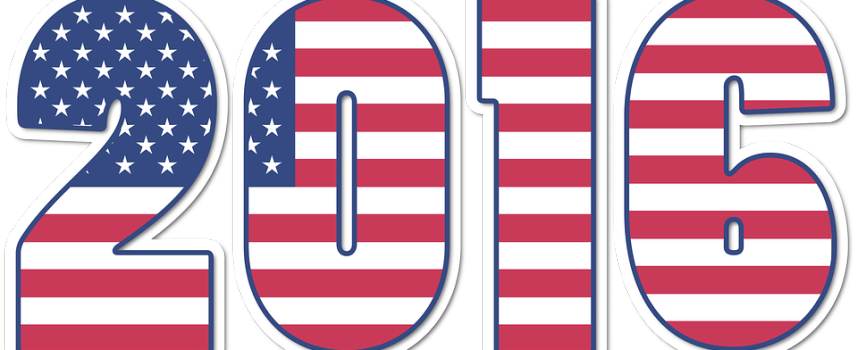Posts From Bruce Ashford
Let’s face it: we evangelical Christians have not exactly “won the day” in terms of our social, cultural, and political initiatives. Although we have made some incremental progress with some of our convictional initiatives, such as pro-life reform, we seem to be losing ground on nearly every other front: religious liberty, human sexuality, marriage, among others. What’s more, certain developments during the past year have caused many of our fellow citizens to view evangelicals as little more than the hypocritical and bigoted special interest arm of the Republican Party.
Not the best of times, these.
In light of the situation, therefore, shouldn’t evangelical Christians consider slowing down, taking a deep breath, and reassessing our priorities so we can treasure the gospel and forget about politics and public life for a while?
No.
[ Read More ]
There are three types of people in our great nation. There are, first of all, those who do not read. An AP-Ipsos poll recently revealed that 25% of Americans do not read books, while other polls have put the number higher, at around 50%. It is not that these Americans cannot read or that they do not accumulate knowledge. (No country’s citizens—and I mean none—bring more depth and import to subjects such as celebrity clothes, hair and makeup, and the intricacies of the Pitt-Jolie marriage than the citizens of the USA.) It is just that their knowledge is not gained from books. Second, there are those who read but do so aimlessly, choosing on a whim what to read and when to do so. Third, there are those who plan to read and who read with a plan.
If you are the third type of reader, or if you wish to become that type of reader, this post offers five tips for determining which books to read (and which not to read).
[ Read More ]
If ever in history there were a non-event, this is it: my top 25 (or so) books for a young theologian to own (and read). A few weeks ago, a friend of mine sent me his list of twenty-five books and it “got me to thinkin.” So here’s my list, but before I give the list, allow me to make several comments.
First, I’ve focused this list mainly on Christian doctrine and systematic theology, and certain other types of books that relate closely to those tasks. I’ve left out numerous wonderful books that fall in other categories (pastoral theology, biblical studies, etc.).
[ Read More ]
The 2016 election cycle has been a never-ending carnival of political wedgies. Nothing could have prepared us for the repetitive sequence of awkward and uncomfortable surprises we have experienced over the course of the past year.
At the beginning of the primary season, the two major political parties offered an unusually broad array of candidates that included liberals, conservatives, progressives, nationalists, socialists, and libertarians. In addition, they offered debates that were strikingly superficial and juvenile, more similar in character to a Saturday Night Live skit than to a serious debate about who should serve as the leader of the most powerful nation in the world. On top of that, they revealed to us the deep fissures within the major parties and within the conservative and progressive movements; neither major party has a consensus candidate.
As the primary season comes to a close and the political parties narrow in on their nominees, many of us still have not decided for whom we will cast our vote. Which of the candidates would make the best President of the United States of America? As we the People consider our answer to this question, we should take into account the following criteria, each of which will significantly affect the way our next president will govern:
[ Read More ]
Here are six sets of resources for pastors, professors, and students who wish to build their “theology and culture” library. I’ve included a variety of resources, some of which represent views I oppose. However, the majority of the resources fit my preferred “Reformational” model.
1. Differing Visions for Christianity and Culture
Richard Niebuhr’s Christ and Culture is a minor classic in 20th century theology; it provides a historical classification of typical Christian views of the relationship between “Christ” and culture. In combination with Niebuhr’s book, you’ll want to read D. A. Carson’s Christ and Culture Revisited and Craig Carter’s Rethinking Christ and Culture. Carson critiques Niebuhr’s theological framework and argues for a more cruciform understanding of the Christian’s place in culture. Carter also critiques Niebuhr’s theological framework as well as Niebuhr’s privileging of Christendom in the conception of his categories. Finally, to cover all your bases, you won’t want to miss Jamie Smith’s brief article critiquing Carson.
[ Read More ]
I learned more about politics during my two years in Russia than I’ve learned in the nearly two decades since. During those two years, I worked as an adjunctive professor at several universities in the city of Kazan. Most of my students were deeply skeptical about whether God existed, whether life had any meaning, and whether there were any moral absolutes. Russia’s cultural institutions—including its government, businesses, marriages, and schools—reflected this deep sense of loss.
For that reason, I felt compelled during those years to think through the relationship of Christianity and politics, and the best guide I found was a dead Dutch theologian and politician named Abraham Kuyper. Here are four of Kuyper’s essential guidelines for mixing Christianity and politics, guidelines that will help us as we navigate our own political involvement.
[ Read More ]
Early in the 2016 election cycle, GOP chairman Reince Priebus declared that the GOP was “likely to have the most diverse presidential primary field in history—of either party.” If diversity is considered in terms of the varied ethnic heritages of the presidential primary candidates, he was right. And yet, 90% of the voters in GOP primaries this year have been white.
Reflecting on this reality, Stanford sociologist Corey D. Fields recently argued in the New York Times that “the image of black Republicans that the G.O.P. disseminates may actually dampen enthusiasm for the party–not only among the black electorate in general, but also among black Republicans themselves.”
[ Read More ]
No Christian—and for that matter, no “soldier worth his salt” (as General Schwarzkopf put it)—will proclaim himself to be “pro-war.” We desire peace. And yet we disagree on how to achieve the peace we desire.
At one end of the spectrum, pacifists refuse to participate in wars of any kind, for any reason. At the other end of the spectrum, crusaders seek final peace by waging war on behalf of an ideal. In the middle of the two views are just war proponents. Unlike pacifists, they are willing to wage war, but unlike crusaders, they are not willing to do so to achieve ideological perfection.
[ Read More ]
In the midst of the carnival-like atmosphere of the 2016 election cycle, evangelicals run the risk of allowing one thing to slip their attention: Hillary Clinton’s enthusiastic acceptance of Planned Parenthood’s endorsement and Planned Parenthood’s heightened efforts to expand its abortive territory.
In light of Planned Parenthood’s aspirations to recruit and train “tens of thousands” of persons to further its mission, how should evangelicals respond? In short, we should continue to seek both legal reform and cultural renewal, and should do so not only by articulating the Bible’s teaching about human dignity but also by enumerating the ways abortion corrupts society.
[ Read More ]
Yesterday, Planned Parenthood’s Action Fund held a crusade in Pittsburgh, PA, recruiting and training volunteers to further its mission. “We brought 1,000 people here to train them,” said Deirdre Schifeling, the Action Fund’s executive director. “These 1,000 people are a key. These folks are going to go back, and they’re going to reach tens of thousands of other people” with Planned Parenthood’s “mission.” This crusade and others like it provide evangelical Christians another opportunity to reflect our own mission to make a mother’s womb the safest place in America.
How does the Planned Parenthood Federation of America (PPFA) implement its mission, for which it is recruiting “tens of thousands of other people?” It does so not only by terminating babies but by creatively recycling and selling organs harvested from the babies’ dead bodies. Although the public has always known abortion to be PPFA’s rainmaker, only recently—through the release of undercover videos by the Center for Medical Progress (CMP)—did the public become aware of PPFA’s practice of reselling infant body parts.
[ Read More ]










